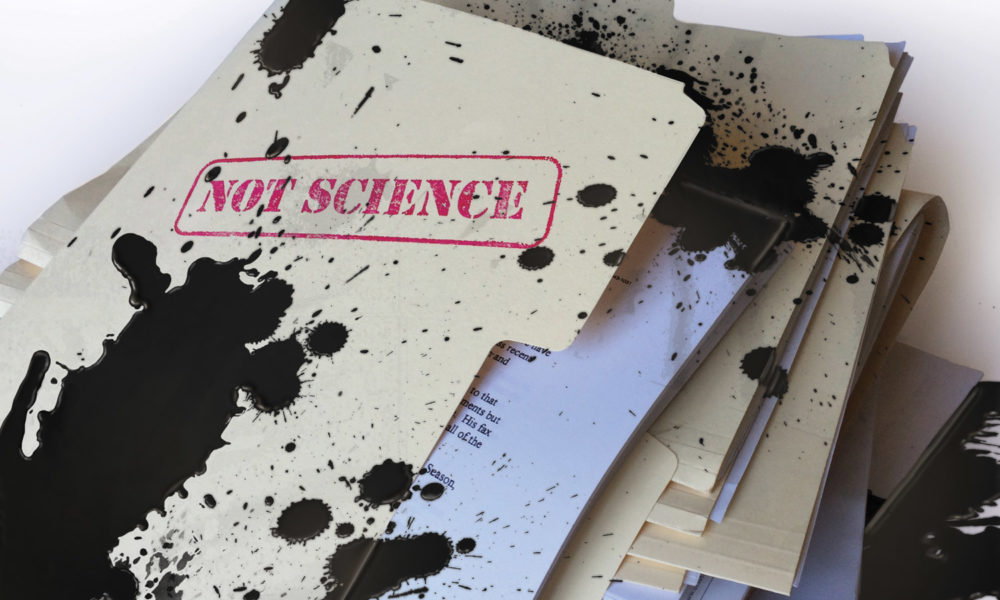What do tobacco, silica, diesel, teflon, asbestos, lead, PFAS, sugar, talc, alcohol, opiods, climate change, and even football head injuries have in common? Aside from their inherent dangers and significant public health and environmental impacts? Aside from the rigor of the scientific evidence about these impacts? And aside from powerful industries whose profits derive from their use?
The answer: They are examples in a well-honed industry public relations playbook based on deception and used to manufacture doubt and uncertainty about the dangers of these products. The playbook’s goal? Confuse the public, stymie any governmental action to protect the public from harm, and protect producer profits for as long as possible.
We can credit Big Sugar for originally crafting the playbook in the early 1950s. Big Tobacco followed and adopted, perfected, and used the playbook for decades with great success. And the playbook’s basic elements have become standard operating procedures for numerous industries whose products threaten public health.
Dark money and the science of deception
UCS has written extensively about this disinformation playbook (here, here, here). And now a new book by David Michaels—faculty member at the George Washington University School of Public Health and former Assistant Secretary of Labor for Occupational Safety and Health (OSHA) under President Obama and Assistant Secretary for Environment, Safety, and Health in the Department of Energy (DOE) under President Clinton—provides a compelling and courageous account of how corporations, trade associations, and their hired guns have used this playbook to the detriment of public health – and to their own benefit. And how they have hijacked the language of science to undermine scientific evidence that shines a light on the danger of their products.
 The Triumph of Doubt: Dark Money and the Science of Deception is a no-holds barred page-turner. In a series of case studies, it names names and describes how powerful players prioritize a requirement of absolute proof over precaution when it comes to exposures’ impacts on human health. For them, there’s never enough proof or never enough proof of enough harm to warrant regulatory action.
The Triumph of Doubt: Dark Money and the Science of Deception is a no-holds barred page-turner. In a series of case studies, it names names and describes how powerful players prioritize a requirement of absolute proof over precaution when it comes to exposures’ impacts on human health. For them, there’s never enough proof or never enough proof of enough harm to warrant regulatory action.
In story after story, the book chronicles how corporate actors and those with vested financial interests have used and misused science and co-opted scientists to manufacture doubt about scientific evidence. How a lucrative product defense industry—with some tried and true go-to players—has grown up to provide the doubt, disinformation, and delay the corporate actors seek in their efforts to discredit established science, downplay risks, and prevent or at least delay (sometimes for even decades) regulation of their dangerous products.
Common strategies and tactics of the disinformation playbook
Over the years, industries using the disinformation playbook have honed a number of methods to confuse the public and sow doubt. They:
- Attack the science. There are lots of tools in this toolbox: commission new “scientific” studies to reanalyze existing data with methodologies biased toward predetermined results; review the literature and risk assessments to question the weight of the evidence; publish these reviews and re-analyses in selected scientific journals; shop for and hire so-called “independent” experts to question the science; provide tasty and contrarian soundbites for the media and public consumption; and more.
- Create and deploy front groups with innocuous-sounding names to undermine science, influence public opinion, and gain access to policy makers while maintaining the illusion of independence.
- Harass and intimidate independent scientists whose research demonstrates or suggests harm. Or alternatively, curry favor with academic institutions and scientists by providing some form of financial support while also varnishing their public interest image.
- Overwhelm regulatory agencies with comments on proposed regulations.
- Use their outsized money, power, and access to influence actions/inactions of elected policymakers and agency officials. (Oh, and there’s also that well-oiled revolving door. Just take a look at how many agency leaders and decision-makers in the Trump administration come straight from the very industries they are now supposed to regulate.)
There are more layers to tactics used in this playbook, but the connective tissue between them all involves doubt, denial, delay, distraction, deflection, and defense of the products in question.
A call to action
Michaels’ book is a powerful call to action. Science is under siege, public health safeguards are being eroded, and we the people are paying the price with our health and our wallets. The book is meticulously documented, leaving no doubt that the playbook works. Yes, it’s depressing and discouraging. And yes, these days are especially exhausting. And yes, stemming and turning the tide will take some time. Restoring, respecting, and rebuilding government agencies charged with protecting us is a basic building block. (At UCS, we have some ideas for that.) As are the laws and regulations that govern corporate behavior.
Michaels offers some bold suggestions. He notes, for example, that unlike humans accused of crimes, chemicals should not be considered innocent until proven guilty. Manufacturing and importing firms should be required to establish the safety of their products before they can be sold—and they should pay for the toxicity studies and risk determinations but not design them or control the scientists who do them. The government should regulate classes of chemicals as a whole instead of individual chemicals. (For example, we know the risks of some specific PFAS chemicals but there are thousands of similar PFAS compounds.)
Finally, Michaels calls on scientists and citizens to organize, demand change, and hold policy makers and corporate decision makers accountable. At UCS, we couldn’t agree more, and have some resources to help (here, here, here).
If we don’t know the tricks and don’t defend ourselves, the playbook will continue to rule, the players will continue to prosper, and our children, families, and communities will pay the price. But now we know, and Michaels’ unflinching work has unearthed their secrets and sounded the alarm for all to see.
We can and must stand up a tough defense. We all have a role in retiring and rewriting this playbook.

